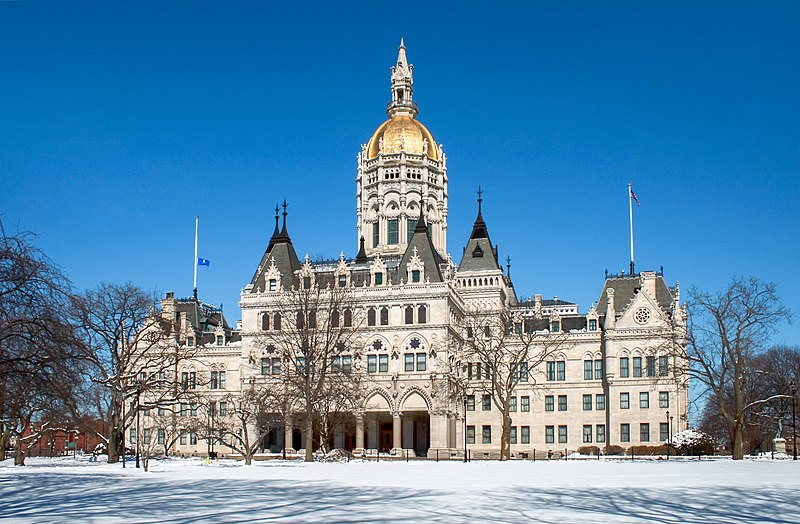We’re through the initial bill drafting and committee public hearings. If a bill is voted out of committee, that means it is has passed the first hurdle, and is ready to be brought to the floor of the senate or the house. Any bill that was not voted out of committee is no longer in play.
For earlier updates, refer to 2024 CT Legislative Session Updates – Part 1
Energy Efficiency Funding
< Update: Not voted out of committee, in jeopardy >
The Energy and Technology Committee raised House Bill 5438 which didn’t get voted out of committee. BuildGreenCT testified virtually in support of this bill, but with modifications. You can see our written testimony HERE. The bill would have provided $145 Million for the Conservation & Load Management Plan for the 2024-25 fiscal year, which would have been problematic. Energy efficiency needs a stable funding source to avoid boom and bust cycles that disrupt the workforce. You can still let your legislators know you support additional funding for energy efficiency using the buttons below. This money can still make its way into the budget without a bill.
Governor’s Senate Bill 11 An Act Coordinating Connecticut Resiliency Planning and Broadening Municipal Options for Climate Resilience
< Update: Voted out of committee and ready to be brought to the Senate for a vote. >
This bill has a lot to it, including new funding options for resiliency and the opportunity for resilience districts, but the part that BuildGreenCT responded to were sections 19-21 pertaining to incorporating optimal greenhouse gas reduction and cost-effective resiliency measures into the CT State Building Code. BuildGreenCT testified virtually in support of this bill. You can read our written testimony HERE, which was a rebuttal to this article from the Home Builder’s and Remodelers Association (HBRA).
According to our CCAG, crucial to the bill’s efficacy is an amendment that advances a climate resiliency fund, financed through a surcharge on insurers’ policies offered to fossil fuel projects. These funds would provide weatherization and clean energy to environmental justice communities, who are disproportionately harmed by pollution, toxins, and the extreme weather disasters fueled by climate change. This would be the first such law in the country, making CT a leader on climate!
House Bill 5004 An Act Concerning the Implementation of Certain Climate Change Measures.
< Update: Voted out of committee and almost ready to be brought to the House Floor for a vote. >
This is the omnibus climate bill known as the Connecticut Climate Protection Act. This bill was crafted by Rep Christine Palm and here is an article she cowrote in support of it. BuildGreenCT testified virtually in support of this bill. You can read our written testimony HERE.
Some notable aspects of this bill are setting a zero-carbon electricity goal by 2030, reduced fees for B Corps, a business incubator for zero-carbon startups, increased battery storage goals to 1000 MW and authorizes PURA to increase incentives, school funding increased by 10% by incorporating renewable energy and energy-efficiency improvements, a goal for deploying 310,000 heat pumps, and state building zero-energy construction requirements, all of which are still included in the version of the bill voted out of committee.
Proposed Solar Legislation
HB-5052, proposed by Governor Lamont, proposes a separate tariff for solar on schools (so they aren’t competing with other commercial projects) and provides school districts grants to explore solar through the CT Green Bank.
< Update: Voted out of committee and almost ready to be brought to the House Floor for a vote. >
HB-5231 proposes removing caps for commercial solar as long as federal funding is available through the Inflation Reduction Act (this is also proposed in HB-5004), requires the Public Utilities Regulatory Authority (PURA) to study a 2-year extension of SCEF (Shared Clean Energy Facility) and a successor program, and proposes allowing “netting” tariffs on commercial arrays up to 2 1⁄2 times the local load.
< Update: Not voted out of committee. >
HB-5232 sets a target of 500 MW of solar per year (with priority going to low-income residents and distressed communities) and a goal of installing solar on 250,000 residences by 2035. It proposes several measures that will streamline and expedite the approval of solar canopy projects, and explore additional ways to promote canopies, and establishes a uniform approach to local taxation of commercial solar.
< Update: Voted out of committee and almost ready to be brought to the House Floor for a vote. >
Other Active Bills of Interest
HB-5390 is a bill in supporting the development of transit-oriented communities backed by Desegregate CT
SB 301 proposed by DEEP to (1) update state energy and water efficiency standards for appliances and other equipment, and (2) expand the Housing Environmental Improvement Revolving Loan and Grant Fund to include a grant program and adjust the bonding authorization for this program.
SB 292 championed by Clean Water Action, this bill would require transparency for intentionally added PFAS in consumer products including carpet, fabrics, and upholstered furniture.
Engage with your State Legislators
Remember you can always email or call your state legislators to let them know your thoughts. They are a good place to start to understand the best way to engage with the legislature to support your priorities.
Reference Build Better CT
This is where BuildGreenCT collaborates with other organizations on building sector policy initiatives.

